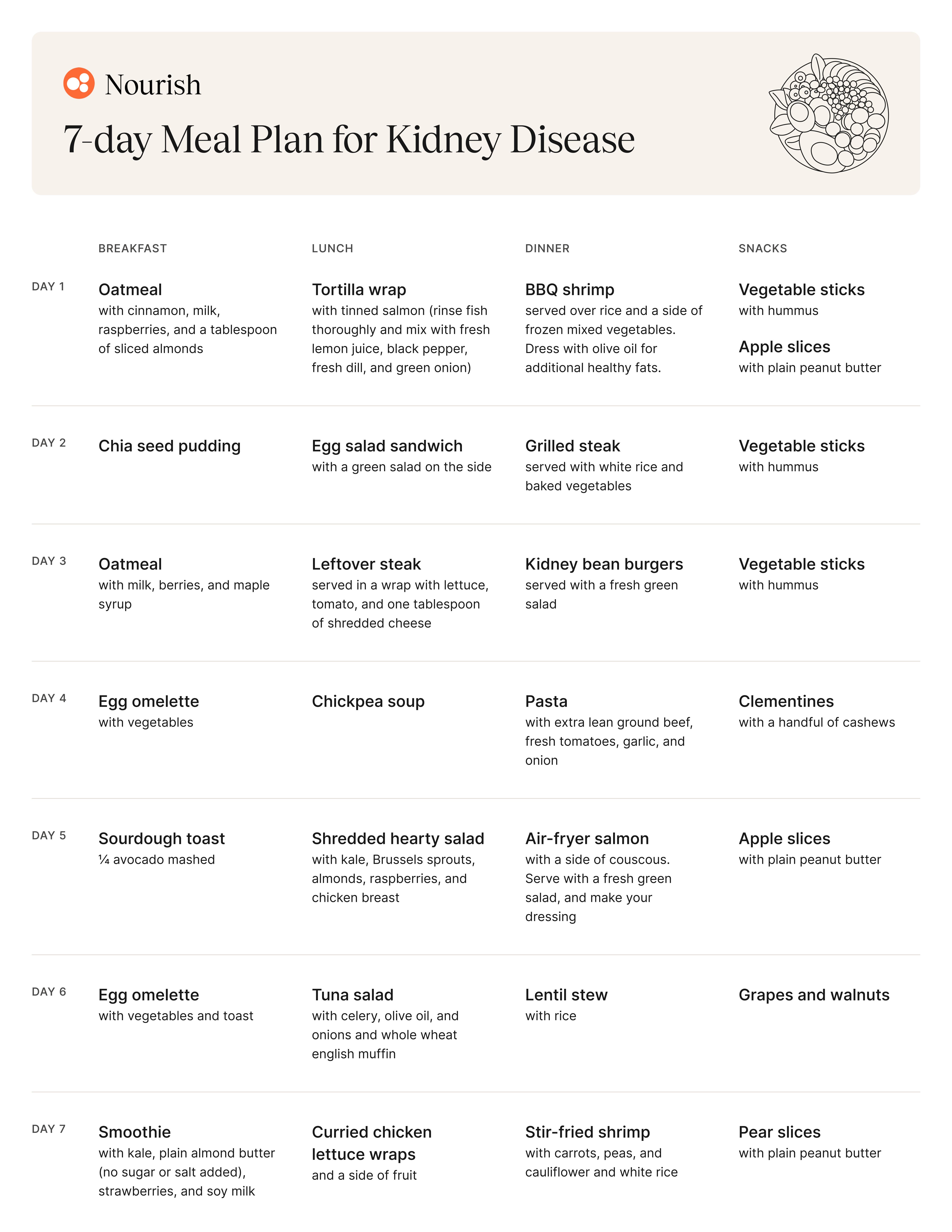Managing diabetes and kidney disease together demands a diet plan that is both strategic and sustainable. A diabetic renal diet meal plan, especially when available as a downloadable PDF, can offer a practical roadmap for patients and caregivers aiming to optimize health outcomes. In this comprehensive guide, we will explore everything you need to know about diabetic renal diet meal plans — from essential principles to real-life applications — helping you take control of your health in an informed and confident way.
Understanding the Intersection: Diabetes and Kidney Disease
Diabetes is a leading cause of chronic kidney disease (CKD), which can progress to kidney failure if unmanaged. Both conditions require precise dietary modifications. Without a carefully tailored diet, blood sugar spikes can worsen kidney function, and kidney impairment can complicate diabetes control.

Key points to grasp include:
- Diabetes Effects: High blood sugar damages blood vessels in the kidneys.
- Kidney Role: Kidneys filter waste and excess fluid; impairment alters nutrient handling.
- Dietary Challenge: Needs to balance blood sugar control and reduce kidney workload.
Therefore, a diabetic renal diet meal plan is uniquely formulated to address these intertwined concerns.
Core Principles of the Diabetic Renal Diet
Before jumping into meal plans, let’s outline the central dietary rules for diabetes complicated by kidney disease:
| Aspect | Dietary Recommendations |
|---|---|
| Carbohydrates | Moderate intake emphasizing complex carbs; monitor glycemic index to control blood sugar. |
| Protein | Controlled intake—usually reduced in advanced CKD—to minimize kidney strain. |
| Sodium | Low sodium (<2, mg/day) to manage blood pressure and reduce fluid retention. |
| Potassium | Adjusted based on kidney function and lab tests; some patients may need to limit high-potassium foods. |
| Phosphorus | Restrict high phosphorus foods to avoid bone and cardiovascular complications. |
| Fluids | May be restricted in certain CKD stages; individualized based on urine output and swelling. |
Why These Restrictions Matter
Each component affects either blood sugar or kidney health. For example, too much protein increases kidney workload. Excess potassium or phosphorus can accumulate if kidneys can't filter well, causing dangerous imbalances.
Building a Diabetic Renal Diet Meal Plan: Step-by-Step
Creating a meal plan that meets the dual demands is easier when following a clear structure:
- Assess Individual Needs: Get laboratory results like GFR (glomerular filtration rate) and blood sugar trends; consult your dietitian.
- Carbohydrate Counting: Choose whole grains, vegetables, and fruits within your potassium limits.
- Protein Selection: Include high-quality protein sources — eggs, fish, poultry — in controlled amounts.
- Limit Salt and Processed Foods: Reduce packaged snacks, canned soups, and fast food.
- Monitor Fluid Intake: Especially if experiencing swelling or hypertension.
- Plan Meals and Snacks: Aim for regular, balanced eating to stabilize blood sugar.
Sample Meal Breakdown (per day):
| Meal | Components | Notes |
|---|---|---|
| Breakfast | Oatmeal with blueberries, boiled egg, herbal tea | Low potassium fruit, moderate protein, fiber for glucose control |
| Lunch | Grilled chicken salad with lettuce, cucumber, olive oil dressing | Low sodium, high protein, potassium controlled vegetables |
| Snack | Apple slices with almond butter (small portion) | Fruit to avoid spike; healthy fats |
| Dinner | Baked fish, steamed green beans, white rice | Protein source, low potassium veg, complex carb |
| Snack | Unsalted crackers and low-fat cheese | Light, protein-rich snack before bed |
Real-Life Case Study: Sarah’s Journey to Manage Diabetes and Kidney Disease
Sarah, a 58-year-old woman diagnosed with type diabetes years ago, was recently told her kidney function had declined to moderate CKD. Overwhelmed with medical advice, Sarah found it difficult to balance her carb intake and protein needs.
Her dietitian introduced her to a diabetic renal diet meal plan PDF tailored to her lab results and preferences. With clear meal suggestions and portion sizes laid out, Sarah regained control. Within three months, her blood sugar fluctuations were reduced, and she experienced less swelling due to better fluid and sodium management.
Sarah shares, "Having a clear guide that I can refer to anytime took away the guesswork. I feel healthier and more confident these days."
Tips for Using a Diabetic Renal Diet Meal Plan PDF Effectively
- Print or Save Digitally: Keep it accessible for everyday reference and grocery shopping.
- Customize: Adjust meals according to your blood test results and taste preferences, with professional advice.
- Meal Prep: Prepare ingredients in advance to avoid last-minute unhealthy choices.
- Track Your Progress: Record blood sugar and kidney function to correlate with dietary changes.
- Stay Hydrated: Follow fluid guidelines carefully; hydration varies by CKD stage.
Common Foods to Include and Avoid
| Include (Best Choices) | Avoid (Limit These) |
|---|---|
| Brown rice, quinoa, oats, whole wheat bread | White bread, sugary cereals, processed snacks |
| Fresh vegetables: cabbage, cauliflower, cucumber | Potatoes, tomatoes, spinach, bananas (high potassium) |
| Lean proteins: fish, skinless chicken, egg whites | Red meat, processed meats, full-fat dairy |
| Low sodium herbs and spices: garlic, lemon juice, basil | Salt, soy sauce, salted nuts |
| Fresh fruits: apples, berries, grapes | Oranges, melons, dried fruits |
Frequently Asked Questions (FAQ)
- Q: Can I follow a diabetic renal diet meal plan without professional help?
- A: It's highly recommended to consult a dietitian or doctor because individual needs vary greatly based on kidney function and diabetes control.
Final Thoughts
Tackling the challenge of managing diabetes alongside kidney disease doesn't have to be daunting. A solid, easy-to-follow diabetic renal diet meal plan PDF can become your trusted companion, guiding you toward better health day by day.

Remember, diet is just one part of effective management, and individualized care with medical professionals is crucial.



